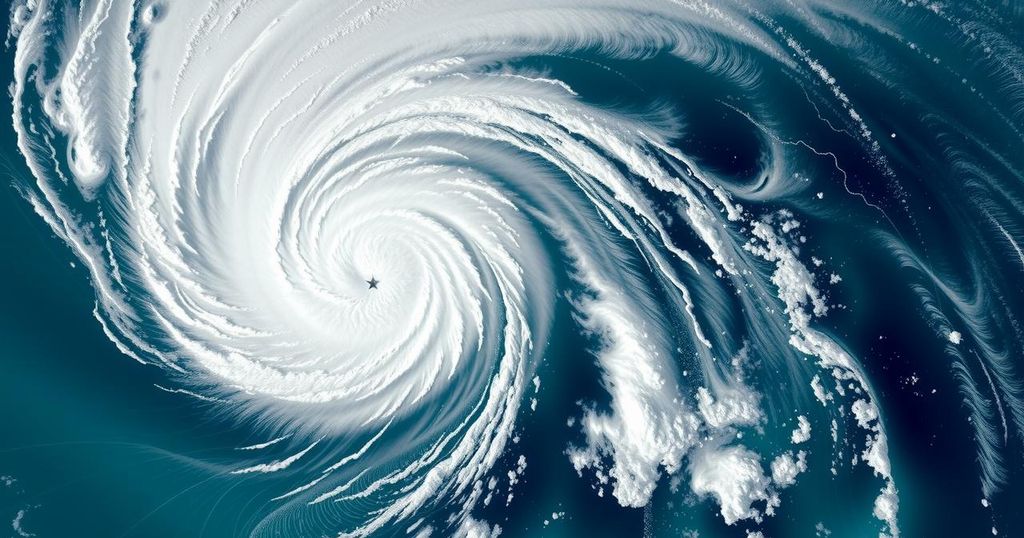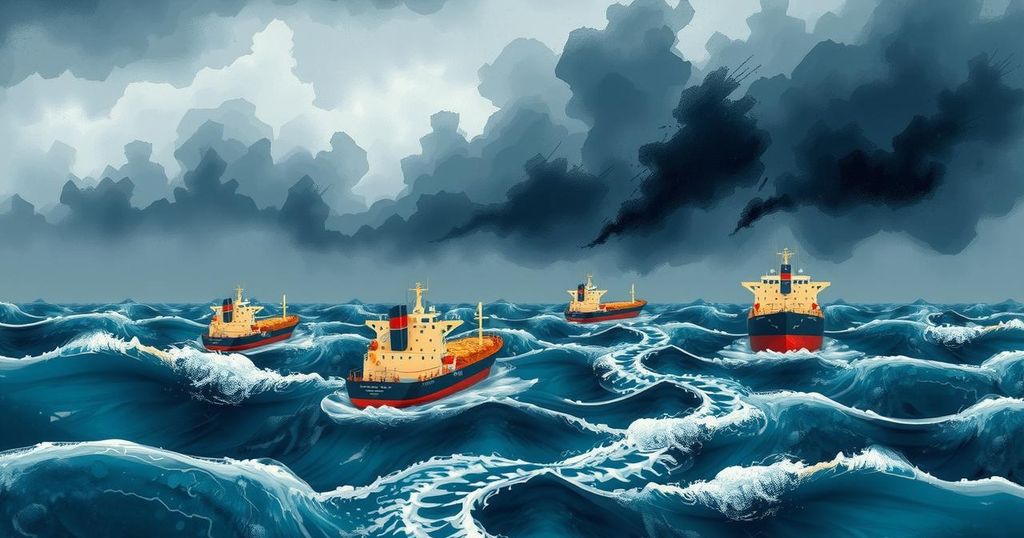Mayotte Faces New Challenges with Tropical Storm Dikeledi After Cyclone Chido
Mayotte has been struck by Tropical Storm Dikeledi shortly after Cyclone Chido, causing red alerts due to heavy rains and potential flooding. Cyclone Chido resulted in numerous casualties and significant infrastructure damage. Dikeledi has also claimed lives in Madagascar and prompted United Nations response efforts to protect vulnerable communities in Mayotte.
Mayotte, a French territory in the Indian Ocean, faced another natural disaster as Tropical Storm Dikeledi struck shortly after Cyclone Chido devastated the region. Dikeledi imposed heavy rain and strong winds, prompting authorities to issue a red alert, urging residents to take shelter and prepare essential supplies. The recent storm has already caused significant loss of life in Madagascar before rapidly deteriorating into a tropical storm upon reaching Mayotte.
Cyclone Chido, which affected Mayotte on December 14, resulted in a tragic loss of at least 39 lives, with over 200 individuals reported missing and more than 5,000 injured. As Dikeledi approached, it further intensified the risk of flooding and landslides in Mayotte, compelling local authorities to close the international airport that had already sustained damage from Cyclone Chido. The residents, still recovering from the previous cyclone, were advised to find refuge in designated cyclone shelters, as the village of Mbouini, which had been spared during Chido, suffered considerable flooding and destruction.
Mayotte’s precarious situation is exacerbated by its population of approximately 320,000, which includes around 100,000 undocumented migrants. The region’s vulnerabilities were further exposed in the aftermath of Cyclone Chido, where the destruction of housing and critical infrastructure had already left many without adequate shelter. In response, French authorities mobilized emergency services and security personnel to assist with the ramifications of Dikeledi, emphasizing the necessity for robust disaster response measures in the region.
The Indian Ocean territory is prone to cyclones, notably during the peak November to April season. This year has witnessed a notably aggressive series of storms, mirroring the widespread destruction caused by Cyclone Idai in 2019 across Madagascar, Mozambique, Malawi, and Zimbabwe. Dikeledi’s impact reinforces the lingering challenges Mayotte faces in managing natural disasters effectively and the need for ongoing preparedness within these communities.
The context of this situation is established by Mayotte’s geographic conditions and climatic patterns that lead to recurring natural disasters, primarily cyclones. The area has been historically vulnerable to severe tropical storms, with recent years showing an increase in their frequency and intensity. Understanding the demographics of Mayotte, including a significant number of undocumented migrants, highlights ongoing humanitarian challenges that compound the impact of such disasters. Previous recent occurrences, such as Cyclone Chido and Cyclone Idai, illustrate the region’s vulnerability and the urgent need for comprehensive disaster response strategies.
In summary, the occurrence of Tropical Storm Dikeledi marks a significant challenge for Mayotte as it continues to recover from Cyclone Chido. The overlapping impacts of these natural disasters have underscored the fragility of the region, necessitating immediate responses and long-term preparations to protect vulnerable populations. The effective coordination of emergency services and the community’s resilience will be critical in mitigating the effects of such storms in the future.
Original Source: www.inkl.com




Post Comment